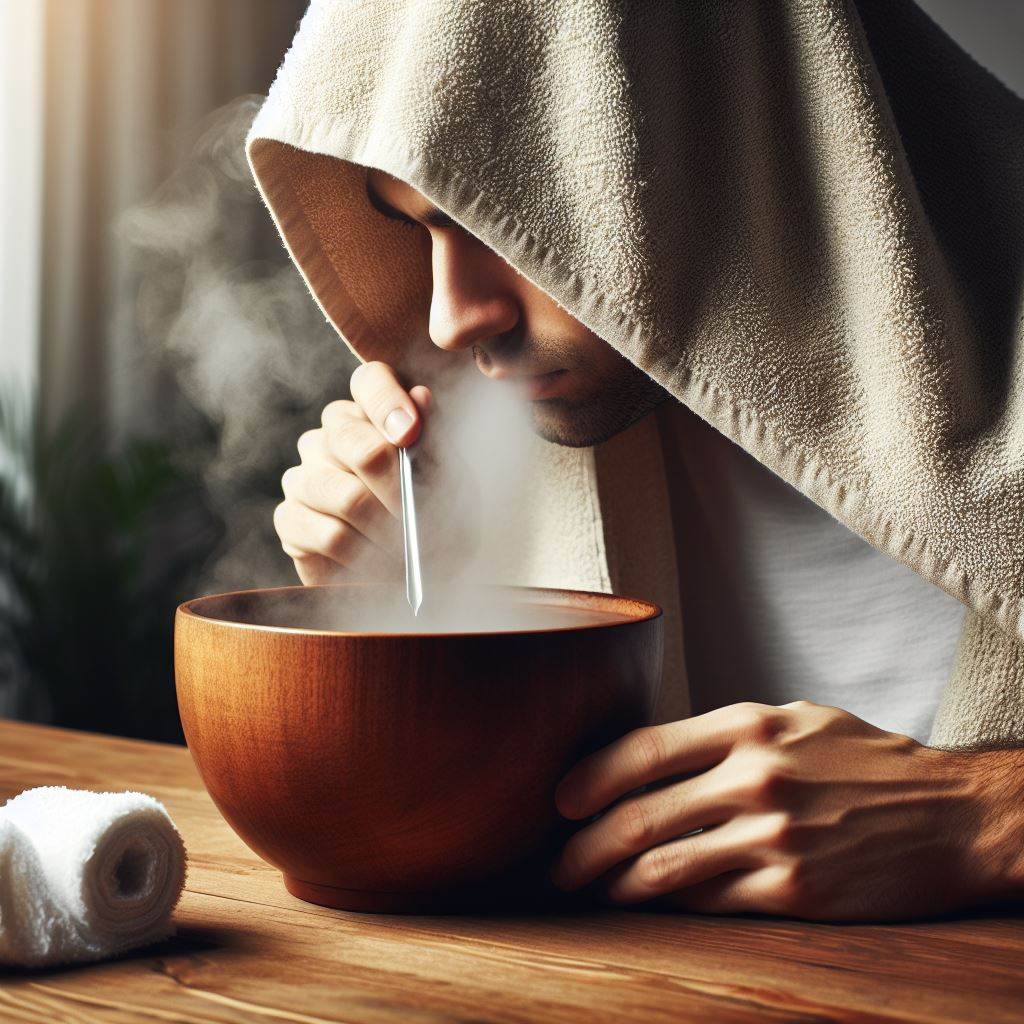Are you tired of dealing with the discomfort of a sore throat and persistent cough? There are natural remedies you can try at home to alleviate these symptoms and promote faster recovery. In this guide, we will explore simple and effective methods to ease sore throat and cough naturally. We will provide detailed instructions on how to use each remedy, along with additional tips for optimal relief and recovery.
About
A sore throat and cough are common symptoms of various respiratory infections, allergies, and environmental irritants. While these symptoms can be bothersome and uncomfortable, they are often manageable with simple home remedies and lifestyle adjustments. By using natural remedies and practicing good self-care, you can soothe your throat, alleviate coughing, and promote faster healing without the need for over-the-counter medications or prescription drugs.
What are Sore throat and Cough? Find at the end of the article
Home Remedies for Sore Throat and Cough
Now, let’s explore some effective home remedies for easing sore throat and cough naturally. These remedies are safe, affordable, and easy to use, making them ideal for self-care at home.
1. Stay Hydrated
One of the most important things you can do to alleviate sore throat and cough is to stay hydrated. Drinking plenty of fluids helps keep the throat moist, soothes irritation, and loosens mucus, making it easier to cough up. Aim to drink at least 8-10 glasses of water per day, and include warm beverages such as herbal teas, broths, and warm water with lemon and honey for added relief.
How to Do It: Keep a water bottle or thermos with you throughout the day and sip on fluids regularly. Set reminders on your phone or use a hydration-tracking app to ensure you’re drinking enough water.
2. Gargle with Salt Water

Gargling with warm salt water is a simple yet effective remedy for relieving sore throat pain and reducing inflammation. The salt helps draw out excess moisture from the tissues, reducing swelling and discomfort.
How to Do It: Mix half a teaspoon of salt in a glass of warm water until it dissolves completely. Take a sip of the saline solution, tilt your head back, and gargle for 30 seconds before spitting it out. Repeat several times a day as needed.
3. Honey and Lemon

Honey and lemon are both known for their soothing and antimicrobial properties, making them excellent natural remedies for sore throat and cough. Honey helps coat the throat, reducing irritation, while lemon provides a boost of vitamin C to support the immune system.
How to Do It: Mix one tablespoon of honey with the juice of half a lemon in a cup of warm water or herbal tea. Stir well and sip slowly, allowing the mixture to coat your throat for maximum relief. Repeat several times a day as needed.
4. Herbal Teas
Herbal teas are a comforting and effective way to ease sore throat and cough symptoms naturally. Certain herbs, such as chamomile, peppermint, ginger, and licorice root, have anti-inflammatory and soothing properties that can help reduce throat pain and suppress coughing.
How to Do It: Brew a cup of your favorite herbal tea using dried herbs or tea bags. Cover the cup and let it steep for 5-10 minutes to extract the beneficial compounds. Remove the tea bag or strain out the herbs, and sip the tea slowly while it’s still warm. Enjoy herbal tea throughout the day for ongoing relief.
5. Steam Inhalation

Inhaling steam can help moisturize and soothe the throat, loosen mucus, and alleviate coughing. Steam inhalation is a simple and effective remedy that can provide immediate relief from sore throat and congestion.
How to Do It: Boil a pot of water and carefully transfer it to a heat-safe bowl or basin. Add a few drops of essential oils such as eucalyptus, peppermint, or tea tree oil to the hot water if desired. Place a towel over your head to create a tent, lean over the bowl, and inhale the steam deeply through your nose and mouth. Continue inhaling for 5-10 minutes, taking breaks as needed. Be cautious to avoid burns from the hot steam.
6. Rest or Relaxation
Resting and allowing your body to recover is essential for overcoming sore throat and cough. Give yourself permission to take it easy and avoid strenuous activities that can exacerbate your symptoms.
How to Do It: Set aside time each day for rest. Take short naps, practice deep breathing exercises, listen to calming music, or engage in gentle activities such as reading or stretching. Avoid smoking, exposure to secondhand smoke, and other irritants that can worsen your symptoms. Use a humidifier in your bedroom to keep the air moist and prevent throat dryness, especially during the winter months when indoor heating can lead to dry air.
7. Over-the-Counter Remedies

If home remedies alone are not providing sufficient relief, you may consider using over-the-counter (OTC) remedies such as throat lozenges, cough syrups, or pain relievers. These products can help alleviate symptoms temporarily and make you feel more comfortable while your body fights off the underlying cause of your sore throat and cough.
How to Do It: When choosing OTC remedies, look for products that contain active ingredients such as menthol, benzocaine, dextromethorphan, or guaifenesin, which can help relieve throat pain, suppress cough, and loosen mucus. Follow the dosing instructions provided on the product label, and consult with a pharmacist or healthcare professional if you have any questions or concerns. Be cautious when using OTC medications, especially if you have other medical conditions or are taking prescription medications, as they may interact with other drugs or cause unwanted side effects.
When to See a Doctor?
While home remedies can be effective for managing mild sore throat and cough symptoms, there are certain situations where it’s important to seek medical attention. Here are some signs that indicate you should see a doctor:
- Persistent or severe sore throat that lasts for more than a week
- Difficulty breathing or swallowing
- High fever (over 101°F or 38.3°C)
- Swollen lymph nodes in the neck
- Prolonged coughing that lasts for more than three weeks
- Coughing up blood or greenish-yellow mucus
- Wheezing or chest pain
- Signs of dehydration, such as dark urine, dry mouth, or dizziness
- Persistent fatigue or weakness
- Presence of other underlying health conditions, such as asthma, COPD, or immune disorders
If you experience any of these symptoms or are concerned about your condition, don’t hesitate to contact your healthcare provider for further evaluation and treatment.
Conclusion
In conclusion, easing sore throat and cough naturally is possible with the help of simple home remedies and lifestyle adjustments. By staying hydrated, gargling with salt water, using honey and lemon, drinking herbal teas, inhaling steam, getting plenty of rest, and considering over-the-counter remedies if needed, you can find relief from these bothersome symptoms and promote faster recovery. However, if your symptoms persist or worsen, it’s important to seek medical attention to rule out any underlying health issues.
Remember to listen to your body, take care of yourself, and give yourself the time and space needed to heal naturally.
Understanding Sore Throat and Cough
Before we delve into the remedies, let’s briefly discuss what causes sore throat and cough and how these symptoms can affect your overall health.
What Causes Sore Throat?
A sore throat, also known as pharyngitis, is often the result of inflammation or irritation of the pharynx, the area at the back of the throat. Common causes of sore throat include viral or bacterial infections, allergies, dry air, smoking, and environmental pollutants. Symptoms of sore throat may include pain, scratchiness, difficulty swallowing, and swollen glands.
What Causes Cough?
Coughing is the body’s natural response to clear the airways of irritants, mucus, or foreign particles. It can be triggered by various factors, including respiratory infections, allergies, asthma, smoking, air pollution, and acid reflux. A persistent cough that lasts for more than a few weeks may indicate an underlying health condition that requires medical attention.


